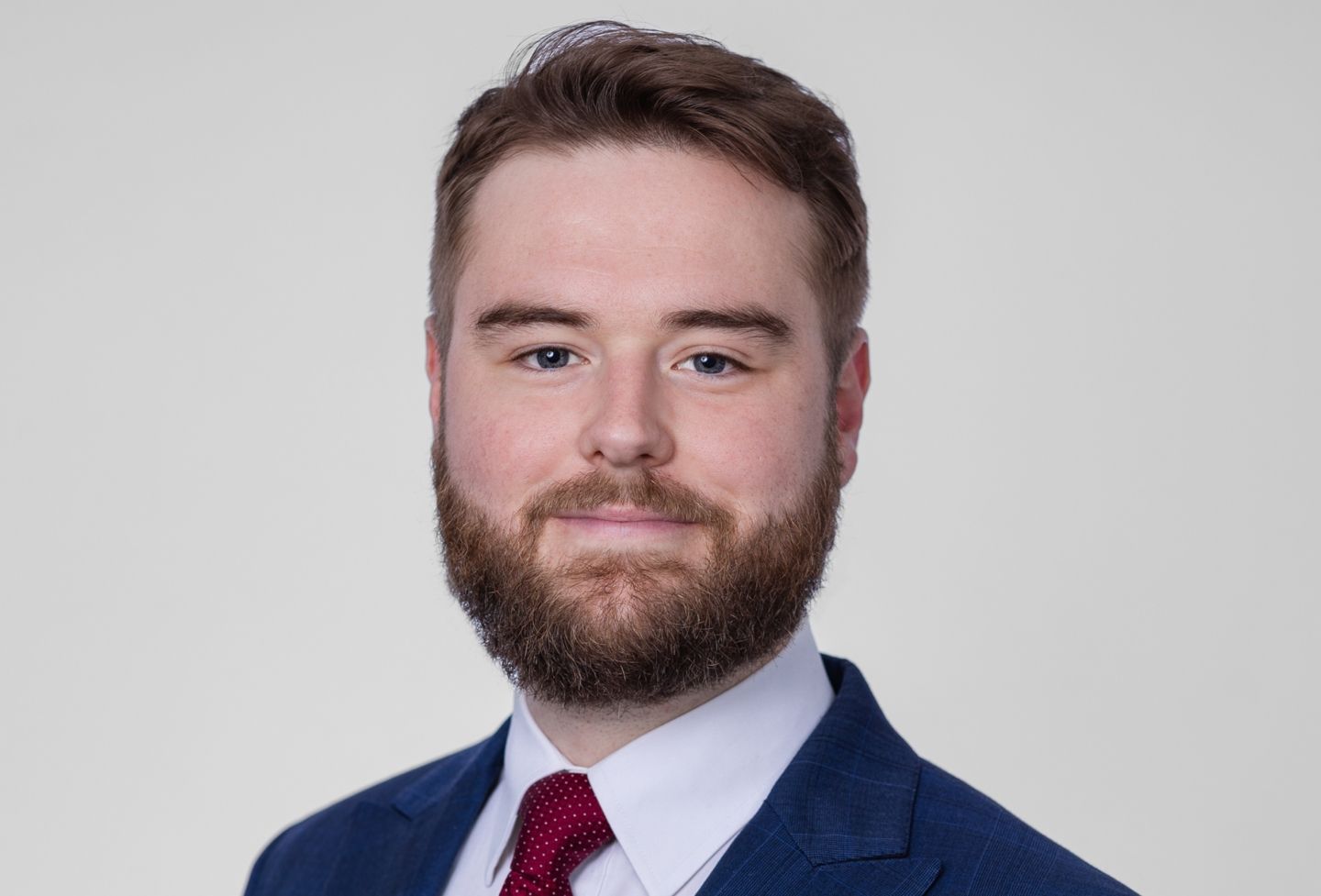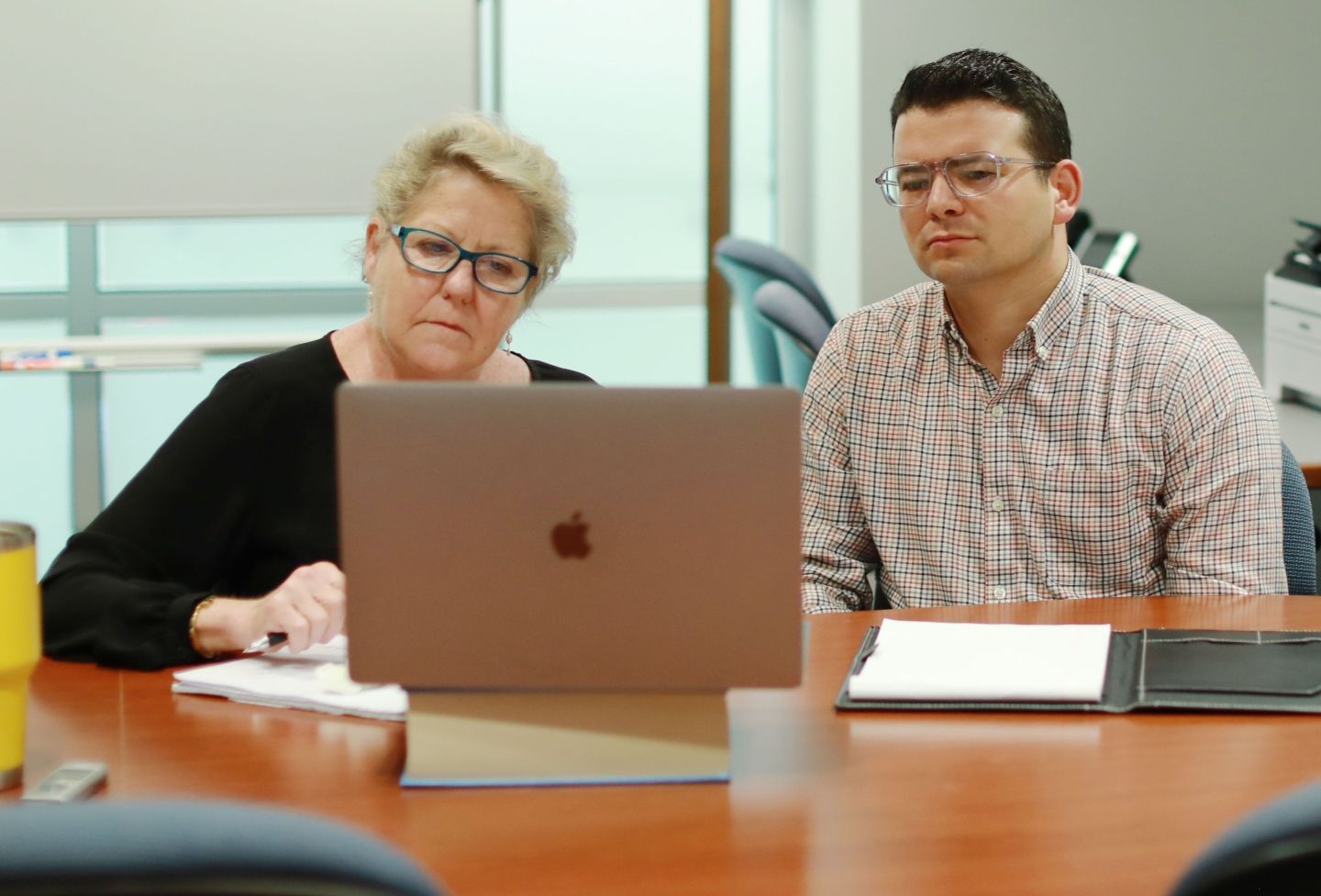What was one thing you did during law school that helped you decide what kind of lawyer you wanted to be?
The biggest thing I did was try out a lot of different stuff. I came in having a wide field of interests, so I joined the Environmental Law Forum, I was in the ACLU, I did the Migrant Farmworker Project. I took a lot of classes in different areas of law. I did one summer internship with the Legal Aid Justice Center doing employment work and an internship with the Capital Habeas Unit doing death penalty habeas cases for a summer. I was in the Human Rights Study Project. I played softball. I was in the Libel Show.
As a result, I got to really understand what it meant to work in all these different areas of law and had a much better idea of what fit me well — both what fit my interests and what I was good at.
It can be hard to stick to your public service commitment throughout law school. How did you do it?
In some ways I didn’t find it hard to stick to my public service commitment. I went to law school to do public interest law; I knew that was the kind of law I wanted to do. I knew what the trade-off was in doing public interest law, in that you make less money but you’re far more likely to be passionate about and love what you’re doing, and for me that trade-off was completely worthwhile.
The other thing is there was a great public interest community when I was there and I was a part of that community, so I had people around supporting me. I also tried to stay very integrated. I didn’t just stay in the public interest community. I was friends with lots of different people who were in and outside of the public interest community and I felt that helped also in some way to keep me well-rounded and balanced.
What was your first job after law school?
My first job out of law school is the same job I’m in now, which is as an employment attorney at Community Legal Services. I was fortunate enough to get a Skadden fellowship to get that job and I was able to stay at the end of my fellowship and I’ve been there for eight years now.
How did you get your Skadden Fellowship?
I took a somewhat nontraditional path in the sense that I never worked at the organization that I ultimately got the fellowship at. A lot of bigger organizations have an application process where during the summer of your 2L year you can apply to the organization to be sponsored to be a fellow for one of the major fellowships out there. So I applied to Community Legal Services because I knew that I wanted to be in Philadelphia.
Instead of proposing a project that I wanted to work on to CLS, I basically told them that I would work in almost any one of their units – CLS does a lot of different types of work and I still didn’t have a particular area I was 100 percent tied to.
I basically went in and said: “I don’t have a specific project for you; I just really want to work at this organization. I love the work you do. These are the six areas that you guys work in that I would be interested in doing.” And then with CLS, after they had brought me through the interview process and selected me, we worked together to figure out what unit would be the most appropriate, what project would make the most sense based on the experiences I’d had and my skills, and based on what CLS needed.
What makes you want to go into the office every morning?
I love my work — I love my cases, I love my clients, I love the policy work that I get to do. The work that I do is just awesome and it’s exciting. I have a lot of leeway to direct the work that I do, so I have client work that obviously leads me in whatever direction the clients lead me in based on what they come in for. But outside of that I get to look at and think about systemic issues that my clients face and then I get to figure out different ways to work on those systemic issues. And to be able to combine that individual advocacy with systemic advocacy just makes for a really exciting job and makes for one that you really want to come in and do every day.
Can you talk a little about your expungement generator?
Sure. The Expungement Generator is a way in which I’ve been able to have a novel impact on my work.
One of the things that my office does a lot is we help people expunge their criminal records, which is something in that you can do in Pennsylvania and most other states, to clear different types of things from your record. In Pennsylvania you can expunge any non-conviction from your record, which removes it permanently, the goal of which is to make it a non-issue when you’re applying for jobs or housing or school in the future. To file an expungement requires a lawyer to look at your criminal record and type up a petition and an order for a judge, and file it. It takes 20-25 minutes to do this for a single person for one case, and if somebody has four or five arrests on their record, it could take you two hours to prepare their expungement petitions.
So, after doing this work a lot and getting really bored with preparing expungement petitions, I wrote some custom software that basically searches the court website for criminal records, reads in their criminal record, and then figures out if they’re eligible for an expungement and creates expungement petitions for them. So the whole process went from taking 20-25 minutes per petition — and someone could have three to five petitions, that’s not uncommon — to taking two to three minutes to generate all of their petitions.
It’s been a really neat way to contribute in a way that’s not sort of your standard lawyering work. But it’s something that I think a lot of public interest agencies are open to — people bringing in outside skills and using them to advance their work in a way that you might not have normally thought. So that’s another thing that keeps me coming in, as I have a lot of leeway to work on stuff like that.
One of the things that helped to fund my work to create the expungement generator was a grant called the FLOM incubator grant. It’s for former Skadden Fellows who might have interesting work they’re trying to do that they want to fund but don’t have a grant for specifically. I was able to apply for and get a grant that paid for the work that I was doing.
What advice do you have for students who want to go into public service work?
I guess there a couple of pieces of advice for people who want to go into public service work. One is to keep your eyes on the prize, to remember why you’re here, to remember why you came to law school and what your goals are. In the long run the thing that’s going to keep you happy and interested in the work you’re doing and having an enjoyable life is to enjoy the work that you’re doing. No amount of money can make up for not enjoying your work.
The second is, if you don’t already have a specific passion, to really apply yourself to lots of different areas. Try out lots of different things. Because you might not like one type of public interest law, but there might be another one out there that’s really for you. You might not be into going to court every day, but you might really like doing statutory interpretation or you might really like doing lobbying or other types of policy work. And there are many, many ways to do public interest work beyond just being a legal aid lawyer doing housing counseling or something.
Another thing to remember is that there’s a lot of jobs out there that don’t require you to be a lawyer. It’s very helpful to have a law degree and to think in the ways that you learned to as a lawyer, but you might be doing something else for an organization that does legal work. You might be working in the policy areas for that organization or you might be working in some other type of strategy or writing area.
Founded in 1819, the University of Virginia School of Law is the second-oldest continuously operating law school in the nation. Consistently ranked among the top law schools, Virginia is a world-renowned training ground for distinguished lawyers and public servants, instilling in them a commitment to leadership, integrity and community service.


